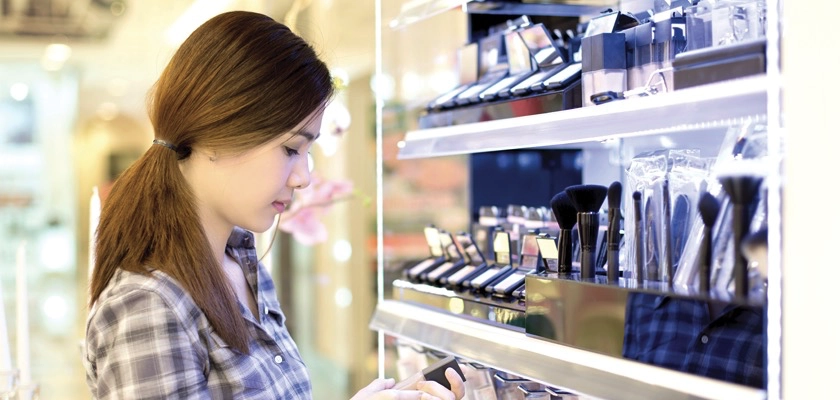e.l.f. Beauty’s Pricing Strategy Is Looking Pretty | October 2022
In the face of rising inflation, e.l.f. increased its prices but left its most affordable products untouched.

Based in Oakland, California, e.l.f. Beauty Inc. is a cosmetics and skincare company. The acronym e.l.f. stands for eye, lip, and face. For more than 18 years, the company has strived to sell high-quality beauty products that are cruelty-free, paraben-free, and vegan at a low price point. In the face of rising inflation, e.l.f. increased its prices but left its most affordable products untouched.
Inflation on the rise
Inflation is squeezing the economy, reaching a forty-year high in recent months. High inflation typically leads to rising prices and decreasing consumer purchasing power. According to PYMNTS, 70 percent of consumers are reducing their discretionary spending. This means many executives are currently making tough decisions about inventory and pricing. Small price hikes can cause consumers to switch brands.
Affordable cosmetics
The e.l.f. brand is synonymous with affordability. Its products are sold well-below products found at department stores or Sephora. For example, its lipstick is priced at only $3. This budget-friendly brand has a way of drawing in new buyers. The company outsources manufacturing to China and is able to make money even on low-ticket items.
Facing inflationary pressure, Tarang Amin, the company’s CEO, says he decided to hold pricing on about a third of its products, including lipsticks and mascara. Amin said it was important to the company to have products that are accessible to every consumer, especially those on a tight budget. To balance it out, e.l.f. is introducing high-priced products, including skincare and makeup kits. Even if inflation doesn’t lessen, e.l.f. is committed to its dual pricing strategy.
The company has about $400 million in annual revenue and has passed Revlon Inc., which recently filed for bankruptcy protection, as the fourth-largest mass-market beauty brand in the United States.
The lipstick effect
Some people say lipstick is a leading economic indicator. The lipstick effect (also known as the lipstick index) suggests that during times of economic stress, people like to “splurge” on low-cost pick-me-ups that won’t break the budget.
This theory was first illustrated in 1998 by economics and sociology professor Juliet Schor in her book The Overspent American. She suggested that when money is tight, women liked to splurge on products they apply in public (such as a tube of lipstick) but save on products applied in the privacy of their home (such as cleansers).
In 2001, Estée Lauder chair Leonard Lauder provided evidence for the lipstick effect, reporting that the company’s lipstick sales spiked after the 9/11 terrorist attacks. Years later, he noted the same phenomenon occurred during the 2008 recession.
Historically, e.l.f. has performed well in the face of inflation relative to its competitors in the beauty industry. Other budget drugstore brands such as Maybelline and CoverGirl have also fared well.
Companies take action
This is not the only company protecting its low-ticket items. Costco, for example, has said it will not change the price of its fan-favorite hot dog and soda combo (priced at $1.50).
However, not all budget-conscious brands have withstood the inflationary pressures. Dollar Tree Inc., which used to sell most products for $1, increased its prices to $1.25 and $1.50. Additionally, McDonald’s, which used to promote $1 drinks regardless of size, began allowing franchise owners to increase soda prices.
e.l.f. keeps its customers in mind
Overall, the company’s prices are up nearly 10 percent on average. When it comes to e.l.f.’s pricing strategy of using low prices and perfectly round numbers, consumers may be more likely to notice a price increase than with pricier items because e.l.f’s prices are more memorable. By maintaining prices on a significant portion of its products, the company is at a lower risk of upsetting its loyal customer base.
E.l.f’s flexible operations mean the company can adjust to changes in supply and demand more quickly than its competitors. Recent lockdowns in China have had little effect on the company’s ability to keep products in stock. Many of e.l.f’s employees are based in China and have close relationships with suppliers, yet the company avoids long-term contracts with vendors that would lock them in with any one manufacturer.
The company decided it would be the best course of action to communicate its partial price increase directly to consumers via social media to maintain goodwill. This is unusual for a consumer brand. In its statement, the company said it prided itself on being transparent and continues to be committed to creating affordable products.
In the Classroom
This article can be used to discuss pricing strategy (Chapter 12: Dimensions of Marketing Strategy).
Discussion Questions
Describe e.l.f.’s pricing strategy and how it has been affected by inflation.
What is the lipstick effect? What other low-cost pick-me-ups do you think could be included in this phenomenon?
Why is e.l.f. more flexible than its competitors?
This article was developed with the support of Kelsey Reddick for and under the direction of O.C. Ferrell, Linda Ferrell, and Geoff Hirt.
Sources
"e.l.f. Beauty Takes on Inflation With Dual Pricing Strategy," PYMNTS, September 20, 2022, https://www.pymnts.com/news/retail/2022/e-l-f-beauty-takes-on-inflation-with-dual-pricing-strategy/
Jim Cramer, "E.L.F. Beauty CEO Discusses Pricing Strategy, Navigating Supply Chain Snags in China," CNBC, June 7, 2022, https://www.cnbc.com/video/2022/06/07/elf-beauty-ceo-discusses-pricing-strategy-navigating-supply-chain-snags-in-china.html
Pamela N. Danziger, "With Recession Threatening, The Lipstick Effect Kicks In And Lipstick Sales Rise," Forbes, June 1, 2022, https://www.forbes.com/sites/pamdanziger/2022/06/01/with-inflation-rising-the-lipstick-effect-kicks-in-and-lipstick-sales-rise/?sh=6e7dce041276
Sharon Terlep, "A Cosmetics Brand Defies Inflation With Its $3 Lipstick," The Wall Street Journal, September 20, 2022, https://www.wsj.com/articles/the-3-lipstick-that-ignores-inflation-11663639487



